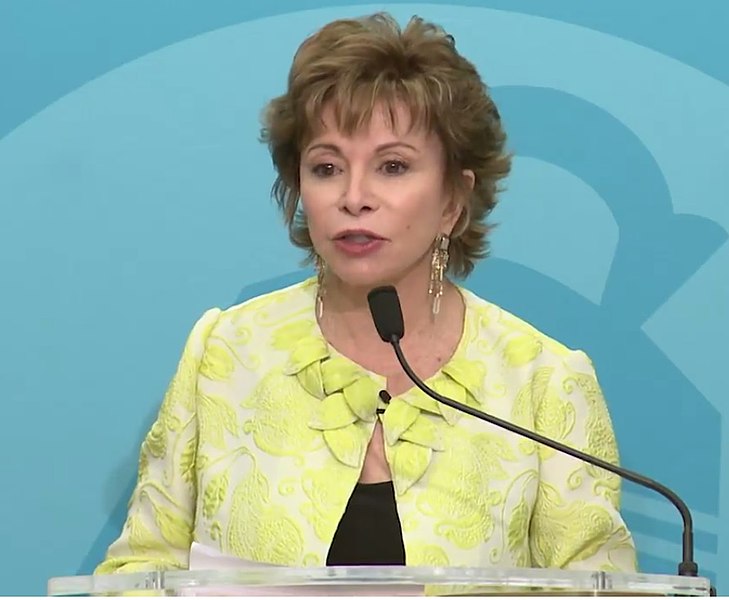- 14 3402-5578
- Rua Hygino Muzy Filho, 737, MARÍLIA - SP
- contato@latinoobservatory.org
 Foto: City Club of Cleveland
Foto: City Club of Cleveland
Isabel Allende, a prominent Chilean writer and journalist, was born in Lima, Peru, in 1942, daughter to a Chilean diplomat and a housewife. After her parents' separation, her mother returned to Chile with Isabel and her siblings, where she spent most of her childhood.
Allende had an international education due to her stepfather's profession, living in different countries such as Bolivia, Lebanon and Chile. After her studies, she began her career working at the United Nations (FAO) and later got married and had two children.
Her literary career began in the mid-1960s, writing for magazines and newspapers, and in 1981 she began her most famous work, "The House of the Spirits," inspired by her family and Chile's political history, especially during the Pinochet dictatorship. The film was an international success and was adapted into a film in 1993.
Allende's other important books include "De Amor y de Sombra" (1984), which tackles political and social issues in a military dictatorship, and "Paula" (1994), an autobiographical account of her daughter's illness and death. After the personal tragedy, Allende founded a charitable organization for women and children at risk.
Throughout her career, Allende continued to write on a variety of topics, often merging reality and fantasy. Her books often explore social and political issues, as well as aspects of the female experience. Allende has received numerous awards for her contributions to literature, including the Chilean National Medal of Literature and the United States Presidential Medal of Freedom. Her work continues to be popular and influential around the world.











